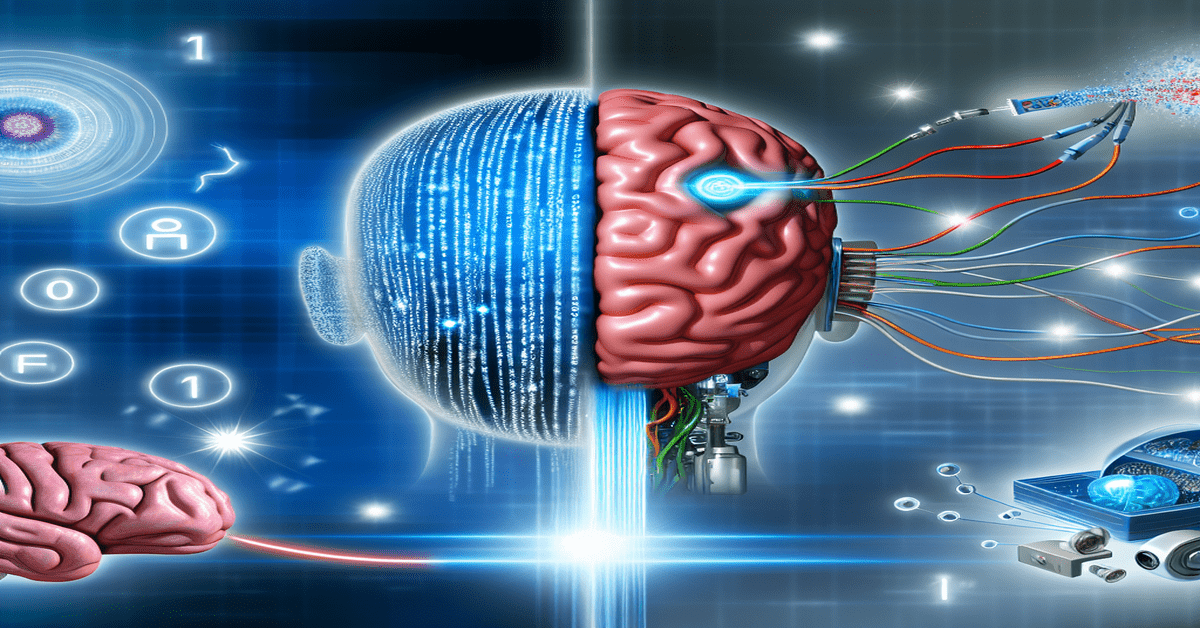Unveiling the Brain’s Predictive Power: AI Sheds Light on Thought Processing
In a groundbreaking study, researchers have harnessed the power of artificial intelligence (AI) to delve into the intricate workings of the human brain, specifically focusing on how it predicts future events and processes information. This pioneering research, recently published in the prestigious journal Nature Neuroscience, promises to revolutionize our understanding of cognitive processes and pave the way for significant advancements in neuroscience and cognitive science.
The study, led by a team of renowned neuroscientists and AI experts, employed cutting-edge AI algorithms to analyze vast amounts of brain activity data. By training these algorithms on extensive datasets, the researchers were able to identify distinct patterns and neural signatures that shed light on how the brain anticipates and responds to various stimuli.
Decoding the Brain’s Predictive Mechanisms
One of the key findings of this study is the identification of specific brain regions and networks that are crucial for predicting future events. The AI algorithms revealed that the brain engages in a complex interplay between sensory input, prior experiences, and contextual information to generate predictions about what is likely to happen next.
The researchers discovered that the brain’s predictive mechanisms are highly dynamic and adaptable, constantly updating and refining predictions based on new information and feedback. This flexibility allows individuals to navigate complex environments and make split-second decisions based on rapidly changing circumstances.
Moreover, the study shed light on the intricate relationship between prediction and attention. The AI analysis revealed that the brain allocates attentional resources to stimuli that are deemed most relevant or informative for predicting future events. This selective attention mechanism helps the brain efficiently process information and prioritize the most salient features of the environment.
Implications for Neuroscience and Cognitive Science
The findings of this study have far-reaching implications for various fields within neuroscience and cognitive science. By providing a deeper understanding of how the brain predicts and processes thoughts, this research opens up new avenues for investigating cognitive disorders, such as attention deficit hyperactivity disorder (ADHD) and schizophrenia, which are characterized by impairments in predictive processing.
Furthermore, the insights gained from this study could potentially lead to the development of novel interventions and therapies aimed at enhancing cognitive function and mental well-being. By targeting specific brain regions and networks involved in prediction and information processing, researchers and clinicians may be able to design more effective strategies for treating cognitive impairments and promoting optimal brain health.
The Power of AI in Neuroscience Research
This groundbreaking study highlights the immense potential of AI in advancing our understanding of the human brain. By leveraging the power of machine learning algorithms and big data analytics, researchers can uncover patterns and insights that were previously hidden within the vast complexity of neural activity.
AI-driven approaches enable researchers to analyze brain data at an unprecedented scale and granularity, allowing for the identification of subtle nuances and individual differences in cognitive processing. This level of precision and detail would be incredibly challenging, if not impossible, to achieve through traditional research methods alone.
Moreover, the integration of AI in neuroscience research promotes interdisciplinary collaboration, bringing together experts from fields such as computer science, mathematics, and cognitive psychology. This convergence of diverse perspectives and skill sets is essential for tackling the most complex questions in neuroscience and pushing the boundaries of our knowledge about the brain.
Looking Ahead: Future Directions and Challenges
While this study represents a significant milestone in our understanding of how the brain predicts and processes thoughts, it also opens up a plethora of exciting avenues for future research. One key area of focus will be to further investigate the neural mechanisms underlying predictive processing across different sensory modalities and cognitive domains.
Additionally, researchers will need to address the challenges associated with translating these findings into real-world applications. Developing effective interventions and therapies based on these insights will require careful consideration of individual differences, ethical implications, and the complex interplay between brain function and behavior.
As we continue to harness the power of AI in neuroscience research, it is crucial to ensure that these technologies are used responsibly and ethically. Safeguarding privacy, data security, and the well-being of research participants must remain a top priority as we push the boundaries of what is possible in understanding the human brain.
Conclusion
The groundbreaking study on using AI to unravel how the brain predicts and processes thoughts marks a significant milestone in our quest to understand the intricacies of cognitive function. By leveraging the power of artificial intelligence, researchers have gained unprecedented insights into the neural mechanisms underlying predictive processing and information processing.
As we continue to explore the vast frontiers of neuroscience and cognitive science, the integration of AI will undoubtedly play a pivotal role in unlocking the secrets of the human brain. Through interdisciplinary collaboration, responsible innovation, and a relentless pursuit of knowledge, we stand on the cusp of a new era in understanding the very essence of what makes us human.
Stay tuned for further updates and discoveries as this exciting field continues to evolve, and join the conversation by sharing your thoughts and perspectives on how AI is revolutionizing our understanding of the brain and cognition.
#Neuroscience #ArtificialIntelligence #CognitiveScience
-> Original article and inspiration provided by Neuroscience News
-> Connect with one of our AI Strategists today at Opahl Technologies


